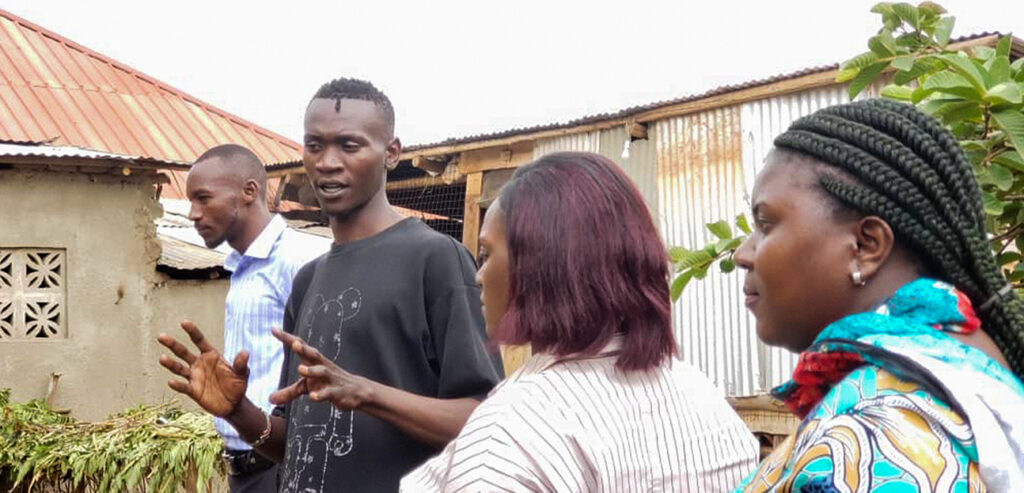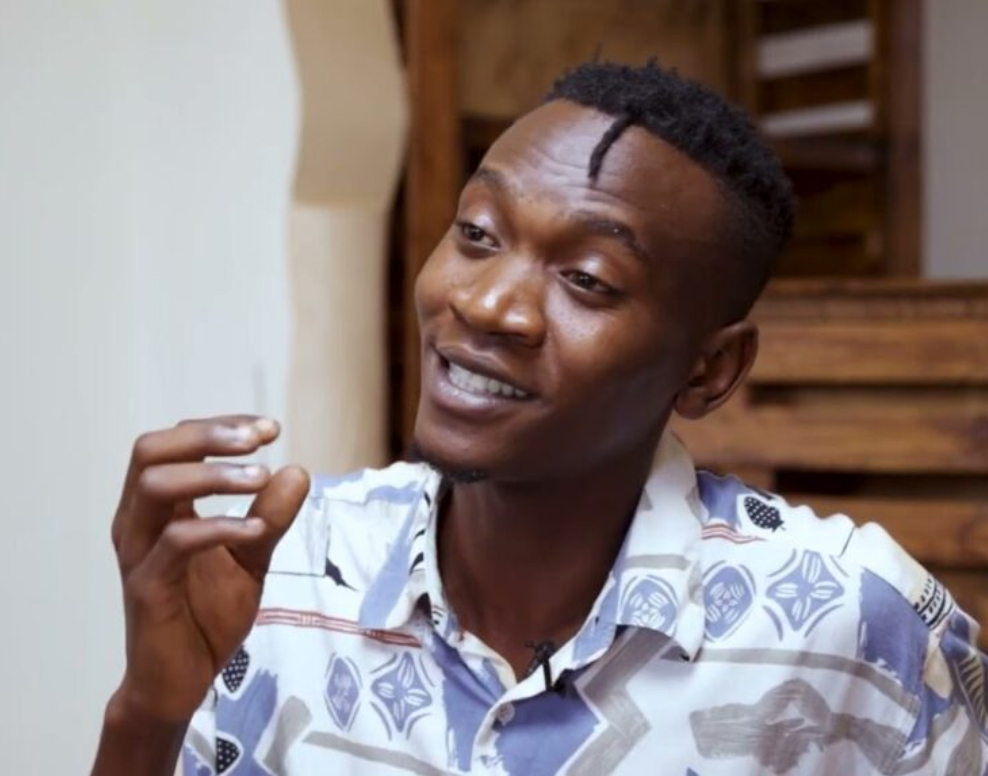Shelter for HIV+ Ugandans tries to survive despite new Anti-Homosexuality Law
Colin Stewart is a 45-year journalism veteran living in Southern…
Meet the activist running a shelter in Uganda for people living with HIV

Muwonge Gerald discusses the challenges facing his shelter in Uganda after the introduction of the country’s extreme Anti-Homosexuality Act.
By Conor Clark
Uganda sparked global outrage last year with the introduction of its Anti-Homosexuality Act, which has forced the country’s LGBTQIA+ community to adjust to a new – and much darker – normal.
The legislation has been recognised as one of the world’s harshest anti-LGBTQIA+ laws and imposes the death penalty for so-called “aggravated” cases of homosexuality, including the transmission of HIV. Uganda has been making steady progress against the virus, with UNAIDS reporting a 39 per cent drop in new infections from 2010 to 2021, but there are now fears that the gains made could be lost because of the Anti-Homosexuality Act.
Muwonge Gerald, the founder of Foaster Foundation for Health Care Uganda, a non-profit organisation working with the LGBTQIA+ community and people living with HIV, has already seen this happening at a grassroots level through the work he does at his community shelter.
“Medication is now not easy to get. Reason being, last time you were free to go to the government facility and just openly say that you belong to the [key population] group. But people now fear that you cannot go and open yourself to the law enforcers because you don’t know what the person on the reception is thinking about the community, so this time round you have to pass through different routes to get treatment, which was not the case back then,” he tells Gay Times.
People stop HIV treatments rather than risk arrest
“I’ve been following 75 members on PrEP, but right now I’m only following 20. The 55 are now lost. Why? They all fear going to the facilities. I’ve been following 120 members on HIV treatment because they know I’m also getting my treatment from Mulago. But this time around, they fear going to Mulago. I now have to struggle to make sure that I go and get refills for them.”
As someone who is gay and has been living with HIV for the last 10 years, Gerald founded Foaster Foundation for Health Care Uganda in 2019 because he has “passed through a lot of difficulties” as a result of his status and identity and wanted to help others. “I decided to start from myself and to use my challenges as a way forward to support my friends – that’s why I came up with the organisation,” he explains. “In this moment in Uganda, LGBTQIA+ persons have to try their best. We have to fend for ourselves because of this new law. We used to think the government was on our side but, this time around, things are totally different.”

Over the last four years, the Foaster Foundation for Health Care Uganda has set up an array of programs that have supported LGBTQIA+ people struggling with homelessness, helped those living with HIV access treatment and worked with the local community to raise awareness about a number of important issues. This work has, however, faced “a lot of challenges” since the effects of the Anti-Homosexuality Act started being felt last year. “We have been raided twice in August and also in November,” Gerald says. “Police and army raided our shelter, arrested us and destroyed our property. They don’t use legal systems to arrest you, it’s just an abrupt raid.”
“When you read this new law, there is a phrase which says that those who are hosting houses, who are hosting gay people or a gay person, you have a right to report to the police or communities,” he continues. “When they hear that you’re gay, they just come, they arrest people, they take documents from your offices, they take some commodities that you have. It’s just like they want to threaten you because they want money.”
Loss of electricity, theft of farm animals
The ramifications of the Anti-Homosexuality Act were made worse when the shelter Gerald runs lost electricity in November. The majority of the facility’s rabbits and hens were stolen that same month, the latter of which were due to lay eggs which were going to be sold to pay for the property’s maintenance bills. He has since had to launch a GoFundMe campaign in order to ensure the shelter – which currently houses 25 people – can stay open and improve the services it provides.
“Our landlord wrote us a letter that he wants us to pay rent for December, as well as an advance of six months, by the 24 January. If we don’t have that money, then we are going to be out of this space and we cannot just sit down and lose this beautiful place,” he says. “So this money is going to support us to pay for our back rent and also to pay for our advance rent as the landlord requested. Also, the number of shelter members has increased and we really lack beds in our rooms. We are 25, but we only have 10 beds.”
Gerald is hoping that he can replace the stolen hens and rabbits so the shelter can sustain itself more by the end of 2024. There are also renovations that need to be completed, including repairing the security system that was destroyed in one of the recent raids. Gerald also wants to open a medical clinic at the shelter by April in order to give those in need of treatment a safe place they can go to get it in light of the new challenges those living with HIV face in Uganda. “Most of our community members use clinics and the clinics they use don’t have much information on us,” he shares. “They don’t know what we’re really going through. So that is the thing which has pushed me to do that and to start ourselves, as a foundation, a medical centre because we have to get treatment.”
Need for fundraising
One of the most important things the fundraising will help pay for, however, is the Foaster Foundation for Health Care legal clinic Gerald has started in response to the Anti-Homosexuality Act. This will serve as a way for LGBTQIA+ people to challenge any criminal charges they face and to help overcome the issues created by ongoing raids. “We are trying to bring justice to our members because a lot of people have lost their money and a lot of people have been blackmailed because of this new law,” he tells GAY TIMES. “So, we said, ‘No, we cannot allow this nonsense to go ahead’. That’s why we are having our community members who are lawyers and are really willing to stand with this problem start following up case by case…I’m really calling upon everyone who can support us because it’s a hard time for us.”
You can donate to Foaster Foundation for Health Care Uganda by clicking here [for the GoFundMe campaign “Anti-Gay Law – Ugandan Queer NGO Rent Support”]




